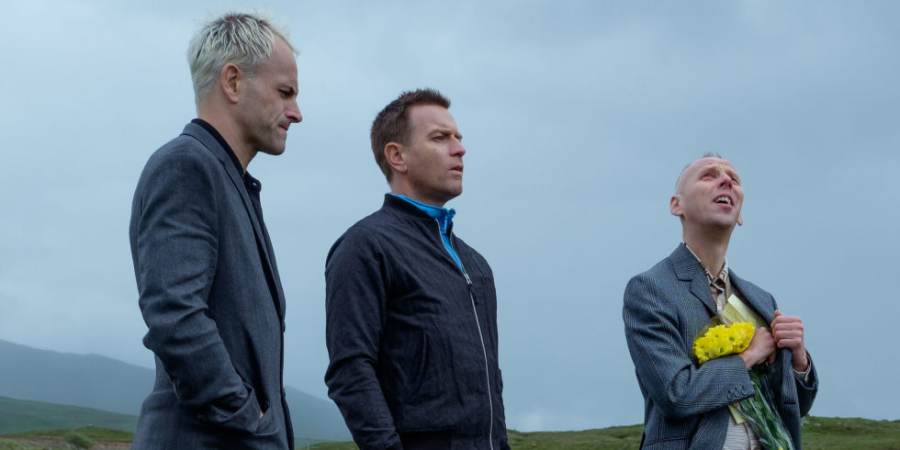
 After 20 years and much anticipation Danny Boyle has followed up his 1996 ode to addiction Trainspotting with a sequel that is every bit as eclectic and vibrant as its predecessor, but doesn’t quite capture the sense of vitality and innovation that made the original so memorable. T2 Trainspotting picks up the story of Renton (Ewan McGregor), Sick Boy (Jonny Lee Miller), Begbie (Robert Carlyle) and Spud (Ewen Bremmer) as they come back into each other’s lives after 20 years of estrangement. When Renton arrives back in his hometown in Scotland after stealing money from his friends two decades prior, old vendettas are resurrected and our four main characters are forced to come to terms with what their actions of years ago mean for them today.
After 20 years and much anticipation Danny Boyle has followed up his 1996 ode to addiction Trainspotting with a sequel that is every bit as eclectic and vibrant as its predecessor, but doesn’t quite capture the sense of vitality and innovation that made the original so memorable. T2 Trainspotting picks up the story of Renton (Ewan McGregor), Sick Boy (Jonny Lee Miller), Begbie (Robert Carlyle) and Spud (Ewen Bremmer) as they come back into each other’s lives after 20 years of estrangement. When Renton arrives back in his hometown in Scotland after stealing money from his friends two decades prior, old vendettas are resurrected and our four main characters are forced to come to terms with what their actions of years ago mean for them today.
In this film, Boyle seems to be exploring what it means look back at who we were the past, and how comparing ourselves to that idea can hold us back from moving forward. The characters in T2 Trainspotting seem to be frozen in development, tethered by the pain of their history and either unable or unwilling to let go of their unfulfilled potential. This approach makes sense for a sequel to a film like Trainspotting, which suggests that pursuing a future at all may be akin to masturbation. In T2 Trainspotting Boyle is constantly using visual and musical cues to evoke the feel or even specific scenes from the original film. This puts us into the mindset of our protagonists who are reflecting on those experiences but also reminds the viewer of how alive these characters were in those scenes, and helps us experience the yearnings the characters feel to be that lively again.
That’s not to say that this film is less alive than its predecessor. Boyle still injects copious energy into the piece through his eclectic shot choices, his bold musical tendencies and propulsive editing style. The film also isn’t shy about experimenting with very modern visual dynamics such as occasional floating subtitles and mobile phone camera photography. The effect is certainly forceful, but it’s hard to tell if these choices are born naturally out of the story, or out of a desire to recreate the immediacy of the previous film. In this way, the film’s greatest strength is also its greatest weakness. The constant allusions to Trainspotting keep us excited and engaged but also repeatedly invite the comparison to a much better film. The experience of watching T2 Trainspotting is very similar to the experiences endured by the characters within it. There is a surge of energy and euphoria at the opportunity to live in this world once again but all the while it seems like it is simply impossible to rise above the experience of what has come before.